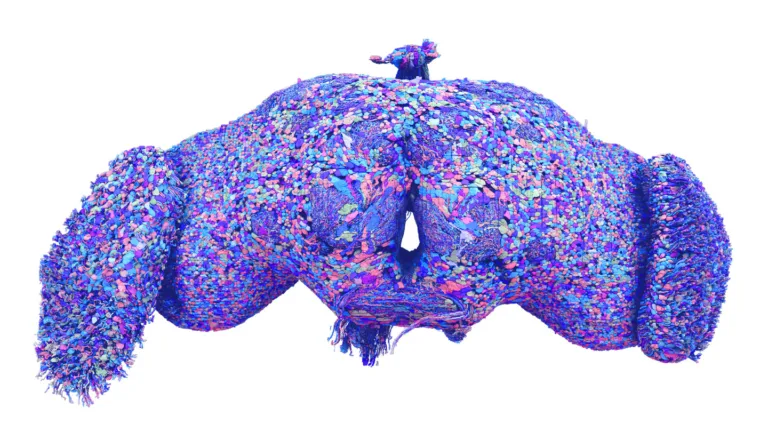Fast Weight Loss 2025: Science-Backed Secrets to Transform Your Body

February 11, 2025
As we enter 2025, the global focus on fast weight loss has never been stronger. With the rise of digital health tracking, personalized nutrition plans, and advanced fitness technologies, people are searching for the most science-backed weight loss solutions that deliver rapid results without compromising long-term health. The need for effective weight loss strategies is fueled by the increasing prevalence of obesity and metabolic disorders. According to the World Health Organization (WHO), obesity rates have nearly tripled since 1975, and in 2025, the demand for safe and sustainable weight loss methods continues to grow.
The Importance of Science-Backed Methods Over Fad Diets
While social media and influencers often promote quick-fix weight loss trends, science tells a different story. Many fad diets promise instant fat loss but fail to provide long-term success. Dr. Michael Mosley, a renowned nutrition expert and creator of The Fast 800 Diet, warns that “crash diets can lead to muscle loss, a slowed metabolism, and an increased likelihood of regaining weight.” Instead, experts emphasize the importance of research-backed approaches such as caloric deficit, metabolic optimization, and structured exercise to achieve fast and healthy weight loss in 2025.
Key Factors Influencing Rapid Weight Loss
For fast weight loss in 2025 to be both effective and sustainable, three primary factors must be optimized:
- Metabolism – A well-functioning metabolism is the foundation of fat loss. Research shows that boosting metabolic rate through thermogenic foods, strength training, and adequate protein intake can significantly enhance weight loss efforts.
- Exercise – Science confirms that high-intensity workouts, resistance training, and increased daily movement accelerate fat burning by enhancing energy expenditure.
- Diet – The right nutrition plan plays a crucial role in achieving fast and lasting results. Diets rich in lean proteins, healthy fats, fiber, and controlled carbohydrates have been proven to improve metabolism and regulate appetite.
Why This Guide Matters
This article provides science-backed secrets to help you achieve fast weight loss in 2025 safely and effectively. By focusing on research-proven methods instead of unsustainable crash diets, you can transform your body fast while ensuring long-term success. The following sections will break down the best strategies, from optimizing metabolism to choosing the right workouts and lifestyle habits for accelerated fat loss.

Fast Weight Loss 2025
The Science Behind Fast Weight Loss
How Metabolism Impacts Fast Weight Loss
Metabolism plays a crucial role in determining how quickly and efficiently the body burns calories and fat. A faster metabolism means the body converts food into energy more efficiently, making fast weight loss more achievable. According to Dr. Eric Ravussin, a metabolic researcher at Pennington Biomedical Research Center, “Metabolic rate is influenced by genetics, muscle mass, and lifestyle factors, but it can be optimized with the right dietary and exercise strategies.”
The two main components of metabolism that affect fast weight loss in 2025 are:
- Basal Metabolic Rate (BMR): The number of calories your body burns at rest to maintain vital functions like breathing and circulation. Increasing lean muscle mass through strength training can significantly boost BMR.
- Thermogenesis: The process by which the body generates heat and burns calories. Eating thermogenic foods like chili peppers, green tea, and protein-rich meals can naturally elevate calorie burning.
The Role of Thermogenesis and Calorie Burning in Weight Loss
Thermogenesis is a key factor in science-backed weight loss methods. It involves energy expenditure through digestion, exercise, and even environmental exposure (such as cold temperatures). Scientific studies show that increasing diet-induced thermogenesis (DIT) can enhance fat loss by 5-15% daily.
Effective ways to boost thermogenesis for fast weight loss include:
- Consuming protein-rich meals – Protein has a high thermic effect, requiring more energy to digest than carbohydrates or fats.
- Drinking green tea and coffee – These contain catechins and caffeine, which have been shown to stimulate fat oxidation.
- Cold exposure techniques – Activities like cold showers or cryotherapy can activate brown fat, which burns calories to generate heat.
Insights from Experts: What Science Says About Safe and Effective Fat Loss
Experts agree that fast weight loss should be approached in a way that preserves muscle mass while promoting fat burning. Dr. Layne Norton, a nutrition scientist, emphasizes, “Losing weight too quickly without proper nutrition and resistance training leads to muscle loss, which ultimately slows metabolism and makes long-term weight maintenance difficult.”
Key science-backed principles for fast and sustainable weight loss include:
- Creating a moderate calorie deficit – Aiming for a 500-750 calorie deficit per day promotes steady fat loss without triggering metabolic slowdown.
- Prioritizing protein intake – High-protein diets not only enhance muscle retention but also promote satiety, reducing overall calorie intake.
- Incorporating high-intensity workouts – HIIT (High-Intensity Interval Training) has been proven to elevate metabolism for hours after exercise, leading to rapid fat burn.
By understanding the science behind fast weight loss, you can implement proven strategies that enhance metabolism, boost thermogenesis, and maximize fat loss in a safe and effective way. The next section will explore the best diet strategies for achieving fast weight loss in 2025 while maintaining long-term health.
Best Diet Strategies for Fast Weight Loss in 2025
The Most Effective Diet Plans for Fast Weight Loss
In 2025, fast weight loss is no longer about extreme calorie restriction but about choosing science-backed dietary strategies that promote fat loss while preserving muscle. Nutrition experts emphasize that the best diets focus on metabolic optimization, appetite control, and sustainable calorie deficits. According to Dr. Mark Hyman, a functional medicine expert, “The key to long-term weight loss is balancing blood sugar, reducing inflammation, and optimizing gut health.”
Some of the most effective diet strategies for fast weight loss in 2025 include:
- The High-Protein, Low-Carb Diet – This approach emphasizes lean proteins, healthy fats, and fiber-rich vegetables while reducing processed carbs. Studies show that higher protein intake increases satiety, enhances metabolism, and reduces overall calorie consumption.
- The Ketogenic Diet (Keto) – A very low-carb, high-fat diet that shifts the body into ketosis, a state where fat is used for fuel instead of carbohydrates. Research suggests that keto can promote rapid fat burning and appetite suppression.
- The Mediterranean Diet with Caloric Control – Focused on whole foods, olive oil, fish, and vegetables, this diet is proven to reduce inflammation, support heart health, and facilitate steady fat loss.
High-Protein, Low-Carb, and Intermittent Fasting Approaches
1. High-Protein, Low-Carb Diet
A high-protein, low-carb diet has been extensively researched for its fat-burning effects. According to Dr. Donald Layman, a leading protein metabolism researcher, “Protein intake is crucial for preserving muscle mass and stimulating metabolism during weight loss.”
How It Works for Fast Weight Loss:
- Boosts thermogenesis, increasing calorie expenditure.
- Reduces hunger hormones like ghrelin, leading to lower calorie intake.
- Preserves lean muscle mass, which keeps metabolism high.
Best Foods to Include:
- Lean meats (chicken, turkey, fish)
- Eggs and dairy (Greek yogurt, cottage cheese)
- Plant-based proteins (tofu, tempeh, lentils)
- Non-starchy vegetables (spinach, broccoli, cauliflower)
2. Intermittent Fasting (IF)
Intermittent fasting remains one of the most popular weight loss methods in 2025, backed by studies showing its ability to enhance fat oxidation, regulate insulin levels, and reduce overall calorie intake. Dr. Jason Fung, a nephrologist and fasting expert, explains, “Fasting forces the body to burn stored fat for energy, leading to efficient and natural weight loss.”
Popular Intermittent Fasting Methods:
- 16:8 Method – Fasting for 16 hours, eating within an 8-hour window.
- 5:2 Method – Eating normally for five days, reducing calorie intake on two non-consecutive days.
- Alternate-Day Fasting – Cycling between regular eating days and very low-calorie days.
The Impact of Gut Health on Fat Loss and Metabolism
Gut health has become a major focus in weight loss research. Scientists have found that an imbalance in gut bacteria can slow metabolism, increase cravings, and lead to weight gain. According to Dr. Tim Spector, a professor of genetic epidemiology at King’s College London, “Your gut microbiome influences how efficiently you digest food, store fat, and regulate hunger hormones.”
Ways to Improve Gut Health for Faster Weight Loss:
- Increase fiber intake with fermented foods (kimchi, sauerkraut, yogurt).
- Reduce sugar and processed foods, which harm beneficial gut bacteria.
- Consume prebiotics and probiotics to maintain a healthy gut microbiome.
By following science-backed diet strategies, including high-protein, low-carb diets, intermittent fasting, and gut-friendly nutrition, you can achieve fast weight loss in 2025 while ensuring sustainable health benefits. The next section will explore the best exercise routines to accelerate fat loss and enhance your transformation.
Exercise Routines That Accelerate Fat Loss
High-Intensity Interval Training (HIIT) vs. Steady-State Cardio
Exercise plays a critical role in fast weight loss in 2025, but not all workouts are equally effective for fat burning. Research shows that high-intensity interval training (HIIT) is one of the most powerful workout strategies for rapid fat loss. According to Dr. Martin Gibala, a professor of kinesiology at McMaster University, “Just 20 minutes of HIIT can burn the same amount of calories as 40 minutes of steady-state cardio while keeping metabolism elevated for hours after exercise.”
HIIT Workouts for Fast Weight Loss:
- Sprint Intervals – 30 seconds of sprinting followed by 30 seconds of walking, repeated for 15-20 minutes.
- Bodyweight Circuit – 40 seconds of squats, push-ups, and burpees, followed by 20 seconds of rest, repeated for 15-20 minutes.
- Jump Rope HIIT – 45 seconds of fast skipping, followed by 15 seconds of rest, repeated for 10-15 minutes.
Why HIIT Works:
- Burns more calories in less time.
- Triggers the afterburn effect (EPOC), meaning the body continues to burn calories post-workout.
- Preserves lean muscle mass while reducing fat.
Steady-State Cardio:
Although HIIT is highly effective, steady-state cardio (such as brisk walking, jogging, or cycling) also plays a role in fat loss by improving cardiovascular health and increasing daily calorie expenditure. The best approach? A combination of both HIIT and steady-state cardio to optimize results.
Strength Training for Increased Calorie Burn and Lean Muscle
Many people overlook the role of resistance training in fast weight loss, but it’s one of the most effective ways to boost metabolism. Strength training helps build lean muscle, which increases basal metabolic rate (BMR), meaning you burn more calories even at rest.
Best Strength Training Exercises for Fat Loss:
- Compound movements: Squats, deadlifts, and lunges engage multiple muscle groups and burn more calories.
- Resistance bands and bodyweight exercises: Ideal for home workouts and maintaining lean muscle.
- Weightlifting: Helps prevent muscle loss during calorie restriction, ensuring a toned and defined physique.
According to Dr. Brad Schoenfeld, an expert in strength training and muscle growth, “Combining resistance training with cardio produces the best results for fat loss and body transformation.”
The Role of Daily Movement and Non-Exercise Activity Thermogenesis (NEAT)
Exercise isn’t just about structured workouts. NEAT (Non-Exercise Activity Thermogenesis) refers to the calories burned through everyday activities like walking, standing, and even fidgeting. Research suggests that people who move more throughout the day (outside of formal exercise) burn significantly more calories than those who are sedentary.
Ways to Increase NEAT for Faster Fat Loss:
- Walk at least 10,000 steps daily.
- Take the stairs instead of the elevator.
- Stand while working instead of sitting for long hours.
- Do short movement breaks every hour to keep metabolism active.
By combining HIIT, strength training, steady-state cardio, and increasing daily movement, you can create the perfect fitness routine for fast weight loss in 2025. The next section will cover lifestyle hacks to further accelerate fat loss and maintain long-term success.

Fast Weight Loss 2025
Lifestyle Hacks to Boost Weight Loss Efforts
The Importance of Sleep and Stress Management for Fast Weight Loss
Many people overlook the role of sleep and stress management in their fast weight loss journey. Research has shown that poor sleep and chronic stress can significantly slow fat loss by increasing cortisol levels, a hormone linked to fat storage, particularly around the abdomen.
According to Dr. Matthew Walker, a sleep scientist and author of Why We Sleep, “People who sleep less than six hours per night are more likely to struggle with weight loss due to increased hunger hormones and reduced metabolic efficiency.”
Ways to Optimize Sleep for Faster Fat Loss:
- Aim for 7-9 hours of quality sleep per night.
- Reduce blue light exposure from screens before bedtime.
- Maintain a consistent sleep schedule to regulate metabolism.
- Avoid caffeine and heavy meals before bed to promote deep sleep.
In addition to sleep, stress management plays a vital role in weight loss success. Chronic stress triggers emotional eating and increases cravings for high-calorie, processed foods.
Effective Stress-Reduction Techniques:
- Meditation and deep breathing to lower cortisol levels.
- Regular physical activity to release endorphins and reduce stress.
- Journaling or mindfulness practices to improve emotional well-being and prevent binge eating.
How Hydration and Mindful Eating Improve Fat Loss Results
Proper hydration is often underestimated in fast weight loss, yet drinking enough water can significantly enhance metabolism and fat burning. Studies suggest that drinking 500ml of water before meals can increase calorie expenditure by up to 30%.
Hydration Tips for Faster Fat Loss:
- Drink at least 2-3 liters of water daily.
- Start your day with a glass of warm lemon water to kickstart digestion.
- Replace sugary drinks with herbal teas and infused water.
Additionally, mindful eating helps control calorie intake and prevents overeating. Instead of relying on restrictive diets, listening to hunger cues and eating slowly can naturally reduce portion sizes and improve digestion.
Mindful Eating Strategies:
- Avoid distractions (TV, phone) while eating.
- Chew food slowly to enhance digestion and satiety.
- Focus on nutrient-dense, whole foods instead of processed snacks.
The Power of Consistency and Habit Formation for Long-Term Success
Weight loss is not just about short-term changes; it’s about creating sustainable habits that lead to long-term transformation. Many people fail because they expect rapid results without consistency. According to James Clear, author of Atomic Habits, “Small daily improvements lead to remarkable long-term results.”
How to Build Lasting Weight Loss Habits:
- Set realistic and achievable goals instead of drastic changes.
- Track progress through journaling, apps, or body measurements.
- Stay accountable by joining support groups or working with a coach.
- Make exercise and healthy eating a part of your daily routine.
By incorporating these science-backed lifestyle hacks, you can accelerate fast weight loss in 2025 while ensuring long-term success and a healthier body. The final section will summarize key takeaways and expert advice for maintaining results.
Conclusion: Achieving Sustainable and Fast Weight Loss in 2025
The key to fast weight loss in 2025 lies in science-backed methods that optimize metabolism, exercise, nutrition, and lifestyle habits. Rather than relying on short-term fad diets, research shows that a combination of high-protein, low-carb diets, intermittent fasting, HIIT workouts, strength training, and proper sleep management leads to effective and sustainable fat loss.
While rapid weight loss is achievable, long-term success depends on consistency, healthy habits, and a balanced approach. As Dr. Michael Greger, author of How Not to Diet, emphasizes, “Weight loss isn’t just about eating less and moving more—it’s about making strategic lifestyle choices that support long-term metabolic health.” By implementing these proven strategies, you can transform your body fast while maintaining your results for years to come.




